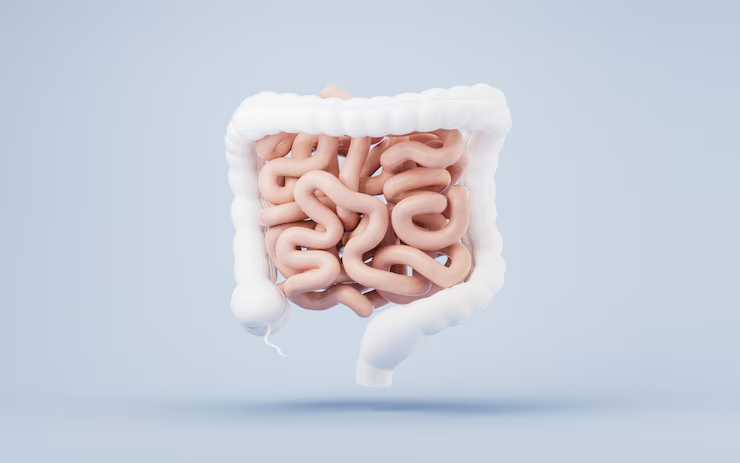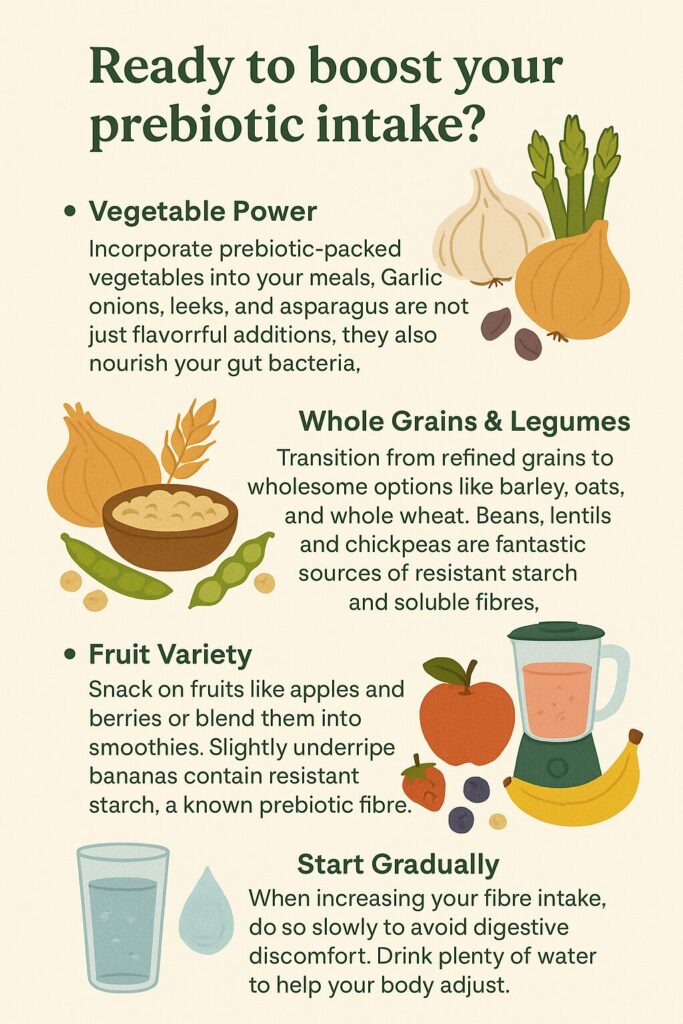Prebiotics vs. Probiotics: Understanding the Key to Gut Health

In the ever-evolving world of health and wellness, one topic has taken centre stage: gut health. With a growing understanding of how our gut health influences not just digestion but also mental health and immunity, the buzz around probiotics and prebiotics has reached new heights. Let’s dive into what these terms mean, why they matter, and how you can incorporate them into your daily routine for a healthier you.
What Are Probiotics?
Probiotics are essentially the “good” bacteria — live microorganisms that, when taken in adequate amounts, provide a plethora of health benefits. Think of them as your body’s allies in maintaining a balanced gut environment.
Benefits of Probiotics :
Improved Digestion: Probiotics aid digestion, enhance nutrient absorption, and help relieve bloating, diarrhoea, and constipation.
Enhanced Immunity: A well-balanced gut microbiome is a vital part of a robust immune system, helping to fend off illnesses by crowding out harmful pathogens.
Restored Gut Balance: After disruptions, such as antibiotic use, probiotics can help replenish the beneficial bacteria, paving the way for a healthy gut environment.
Enter Prebiotics
On the flip side, we have prebiotics — the unsung heroes of gut health. These are non-digestible fibres and compounds that serve as the food for the beneficial bacteria in your gut. Unlike probiotics, prebiotics aren’t live organisms; instead, they nourish and stimulate the growth and activity of probiotics, allowing them to thrive.
Benefits of Prebiotics :
Fuel for Probiotics: By providing the essential nourishment that probiotics need, prebiotics enhance the gut flora’s population and activity.
Improved Gut Barrier: Prebiotics strengthen the gut lining, mitigating the risks associated with “leaky gut” and chronic inflammation.
Better Nutrient Absorption: They aid in the absorption of vital minerals, such as calcium and magnesium, crucial for bone health and overall well-being.
The Key Differences : Prebiotics vs. Probiotics
Why Prebiotics Matter?
Prebiotics are crucial for gut health because they serve as food for the beneficial bacteria in your gut, promoting their growth and activity. These non-digestible fibres pass through the digestive tract to the colon, where they are fermented by gut bacteria. This fermentation process produces short-chain fatty acids, which strengthen the gut lining, reduce inflammation, and enhance nutrient absorption, like calcium and magnesium. By fostering a thriving microbiome, prebiotics help maintain digestive balance, support immune function, and may even influence mental health through the gut-brain axis, making them an essential component of overall wellness.

Let’s Talk About Resistant Starches
Resistant starches are a type of prebiotic fibre that “resist” digestion in the small intestine and ferment in the large intestine — where they feed beneficial bacteria.
Sources of Resistant Starch:
Cooked and cooled potatoes, pasta or rice, Green (unripe) bananas, Legumes like lentils and, chickpeas, Rolled oats
These starches help increase insulin sensitivity, promote fullness, and further encourage the growth of gut-friendly bacteria — making them a powerful addition to your daily diet.
Pink Tiger Verification
At Pink Tiger, we go beyond just recommending supplements — Our verification process includes rigorous quality checks, third-party testing, and expert reviews, which take time to ensure only the best products are approved. By doing this, we help ensure that you are choosing gut health supplements that are not only effective but also clean, science-backed, and aligned with your health goals.
Stay tuned for updates on verified products. Check out: https://youcarelifestyle.com/
Disclaimer: This content is for informational purposes only and is not a substitute for professional medical advice, diagnosis, or treatment. Always consult a qualified healthcare provider for any questions or concerns regarding your health.
References :
The Importance of Prebiotics | Brown University Health. (n.d.). Brown University Health. Retrieved June 12, 2025, from https://www.brownhealth.org/be-well/importance-prebiotics
Ji, J., Jin, W., Liu, S., Jiao, Z., & Li, X. (2023, November 4). Probiotics, Prebiotics, and Postbiotics in Health and Disease. MedComm. Retrieved June 10, 2025, from https://pmc.ncbi.nlm.nih.gov/articles/PMC10625129/
Kechagia, M., Basoulis, D., Konstantopoulou, S., Dimitriadi, D., Gyftopoulou, K., Skarmoutsou, N., & Fakiri, E. M. (2013, January 2). Health Benefits of Probiotics: A Review. ISRN Nutrition. Retrieved June 12, 2025, from https://pmc.ncbi.nlm.nih.gov/articles/PMC4045285/